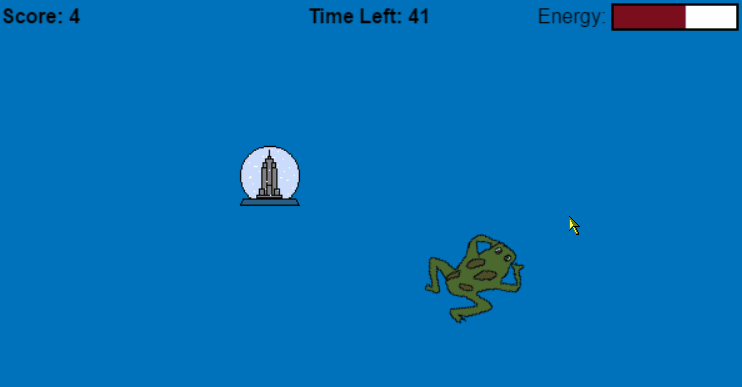In high school I had a friend whose parents gave him a dollar every time he made a mistake. “Mom and Dad,” he’d say. “I smoked weed for the first time last night.”
“That’s great, son!” they’d respond. “Here’s a dollar!”
Or so I was told. But I love the idea of incentivizing and normalizing mistakes. Because it is normal. Humans make mistakes – big ones and small ones pretty much all the time. Constantly, really.
It’s so obvious, and still so hard for me to accept of myself a lot of the time. I suspect this is true for lots of people.
So here’s a playful pocket-sized reminder that it’s OK to make mistakes. A little computerized nudge that you’re still 100% lovable and good.
The whole thing is you having a chat with a friendly grandparent. They’re a cartoon-looking, animated character, sitting outside a house, and you can type to them. Of course, as part of the app setup, you get to pick your own grandparent avatar and setting, which could be either incredibly touching and healing (if you select the actual grandparent who gave you this attunement as a child) or a throwaway gag. It’s really up to you, y’know?
Anyways, you open the app, and your grandparent asks, “What’s bothering you, sweetie?” (or some variant depending on their dialect / accent, but just stick with it. Feel free to imagine it in Yiddish if that’s helpful to you.)
Up pops the chat box and you type in “I posted something stupid on Facebook,” or “I got really angry and defensive and was mean to TJ.”
And then… and here’s where the magic happens…
Your heartfelt admission is run through Google Translate a bunch of times, mangled just enough, and then spit back out to you in English by your grandparent.
“Oh. You’ve posted a sting on Facebook? Well, so what? I still love you anyway. Gimme a kiss!”
Then they pucker up and you gotta tap their big ol’ lips to finish the interaction.
“Thanks for sharing with Grandma. Come back and see me anytime, darling.”
That’s it. They’re always there when you need them. If you’re doubting yourself, or just feeling bad, or have done something harmful. Just a small reminder that the core of your being is still loved and lovable.
So, lots of questions, because this idea just came to me this morning. First off, does it provide any relief? Does it need more upfront framing of why you’re using the app in the first place like, “this is to practice getting comfortable with making mistakes?” And what about big things? Maybe those need a totally separate dialogue… I think this little exchange is too dismissive of real regrets. And also what about actually reconciling and changing harmful behaviors, too?
But! I think it’s a worthwhile start for practicing recognizing your own self-worth and lovability as a human regardless. Because we do make mistakes and hurt people – it’s just part of living, and keeping that sense of goodness at the same time can be a struggle. So hopefully this can be a tool towards that end.
And actually here’s the best thing about this app (and this post, maybe): you can really do this in your own head, by yourself, whenever you want to throughout the day. The app is really just a placeholder. So your challenge (and my challenge – seriously, I’ve been trying lately) is to try this exercise least once this week when you’re feeling down on yourself. Just imagine a kindly elderly mentor telling you it’s ok. That you’re good. That you’re lovable. Because you are – even when you post something stupid on Facebook.
